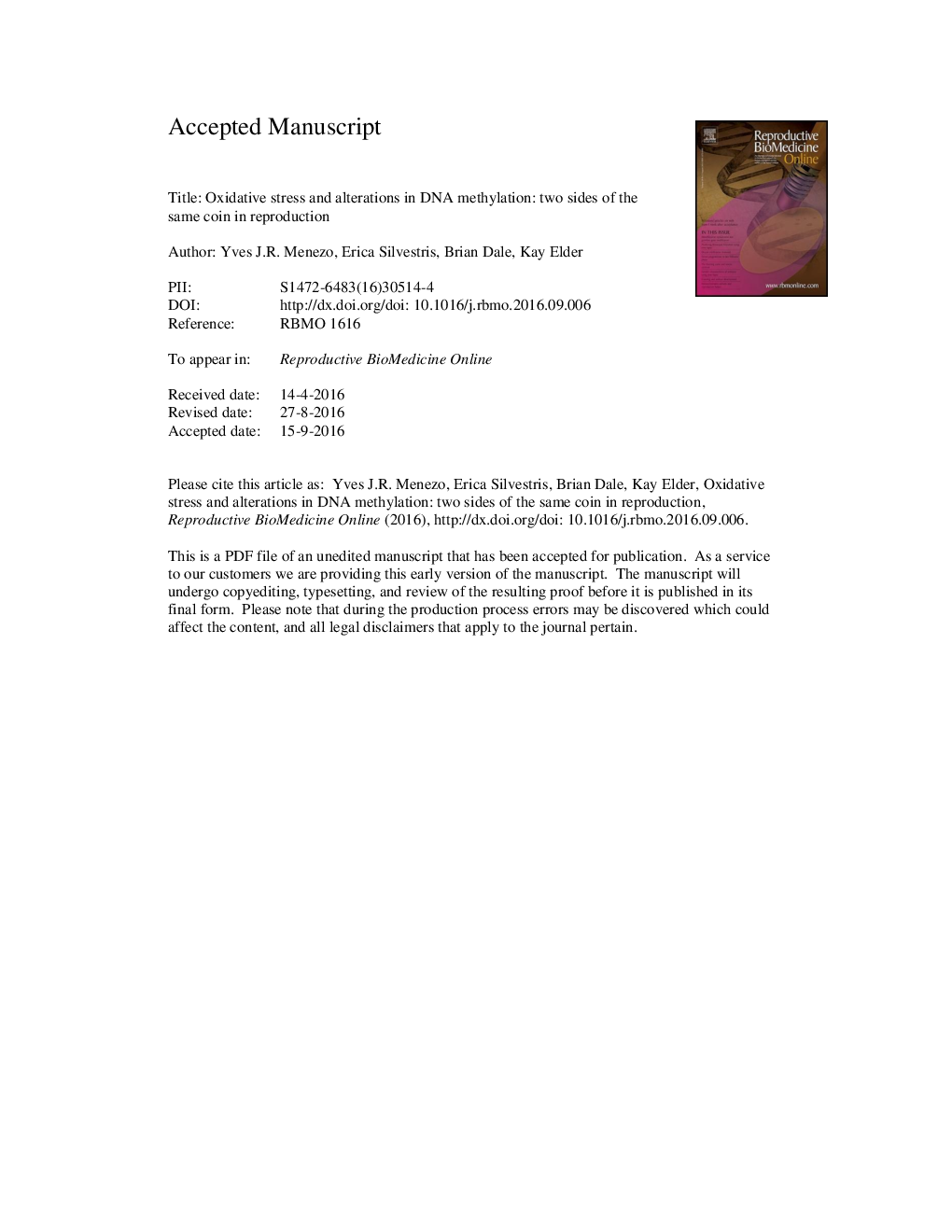| Article ID | Journal | Published Year | Pages | File Type |
|---|---|---|---|---|
| 5696826 | Reproductive BioMedicine Online | 2016 | 37 Pages |
Abstract
The negative effect of oxidative stress on the human reproductive process is no longer a matter for debate. Oxidative stress affects female and male gametes and the developmental capacity of embryos. Its effect can continue through late stages of pregnancy. Metabolic disorders and psychiatric problems can also be caued by DNA methylation and epigenetic errors. Age has a negative effect on oxidative stress and DNA methylation, and recent observations suggest that older men are at risk of transmitting epigenetic disorders to their offspring. Environmental endocrine disruptors can also increase oxidative stress and methylation errors. Oxidative stress and DNA methylation feature a common denominator: the one carbon cycle. This important metabolic pathway stimulates glutathione synthesis and recycles homocysteine, a molecule that interferes with the process of methylation. Glutathione plays a pivotal role during oocyte activation, protecting against reactive oxygen species. Assisted reproductive techniques may exacerbate defects in methylation and epigenesis. Antioxidant supplements are proposed to reduce the risk of potentially harmful effects, but their use has failed to prevent problems and may sometimes be detrimental. New concepts reveal a significant correlation between oxidative stress, methylation processes and epigenesis, and have led to changes in media composition with positive preliminary clinical consequences.
Related Topics
Health Sciences
Medicine and Dentistry
Obstetrics, Gynecology and Women's Health
Authors
Yves J.R. Menezo, Erica Silvestris, Brian Dale, Kay Elder,
